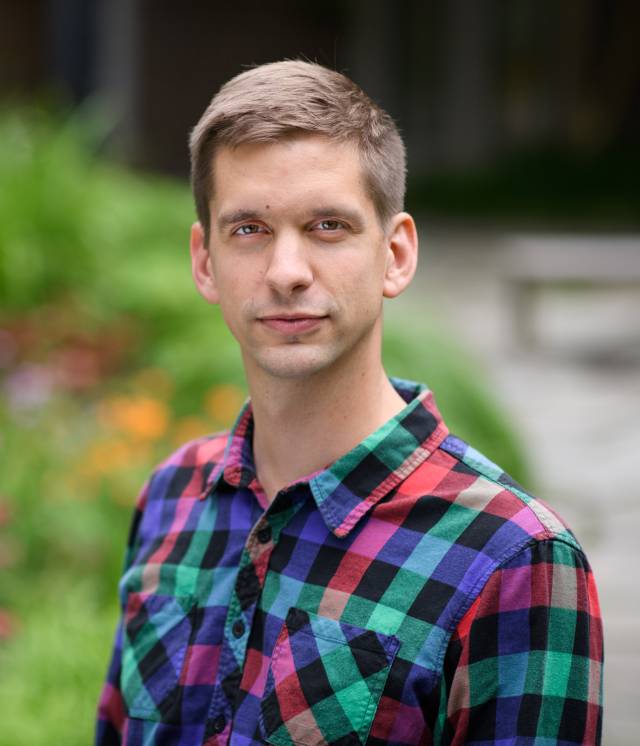PECS scholar, PEI-STEP fellow Tim Treuer selected as AAAS science media fellow
Tim Treuer, a PEI-STEP fellow and Princeton Energy and Climate Scholar (PECS) in the Princeton Environmental Institute, was one of two Princeton University graduate students to be named a 2018 Mass Media Science and Engineering Fellow by the American Association for the Advancement of Science (AAAS). Treuer, a graduate student in ecology and evolutionary biology, will spend the summer working at NOVA Next in Boston.


AAAS typically selects from 15 to 20 fellows each year for a 10-week summer program that places science, engineering and mathematics students at media organizations nationwide. Treuer, a graduate student in ecology and evolutionary biology, will spend the summer working at NOVA Next in Boston. Fellows are provided a weekly stipend of $500 as well as travel expenses to orientation and wrap-up sessions in Washington, D.C., that include trainings, career panels and a chance to bond as a fellowship cohort.
In his years at Princeton, Treuer has worked with Andrew Dobson, professor of ecology and evolutionary biology and PEI associated faculty, and David Wilcove, professor of public affairs and the Princeton Environmental Institute. Treuer has also worked with Michael Oppenheimer, the Albert G. Milbank Professor of Geosciences and International Affairs and the Princeton Environmental Institute.
“Over the better part of six years at Princeton, I’ve realized that achieving our sustainable development and conservation goals requires more than just a deeper understanding of the ecology of endangered species or innovation in renewable energy or carbon sequestration,” Treuer said. “We need public buy-in. We need greater societal understanding of the science of conservation, climate, and so many other topics, as well as a deeper appreciation for the value of scientific investigation itself.”
A few years ago, Treuer discovered that 12,000 metric tons of orange peels had transformed a deforested swath of Costa Rica into a lush forest, giving him not only an extraordinary research opportunity but also a chance to write up his findings for the public on the University’s sustainable development site, Highwire Earth, in January. The findings were related to research Treuer undertook through a 2015 Walbridge Fund Graduate Award from PEI.
Last spring, he attended a science filmmaking workshop in Montana, which in turn led to a filmmaking project with PECS. Treuer is a hunter and fisherman in his home state of Alaska.
The AAAS fellowship “is a blank canvas opportunity to broadly explore science,” Treuer said. “It will (hopefully!) be a chance to follow my curiosity across a wide variety of disciplines and try to wrap my head around a new topic or question every few days, and try and spin up that exploration into a compelling narrative.”




